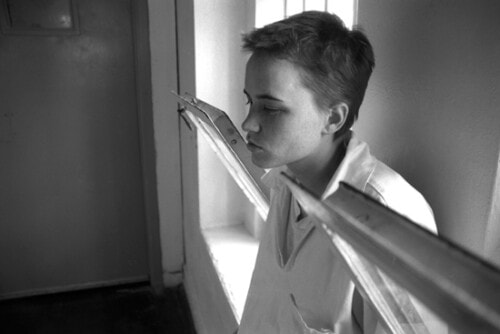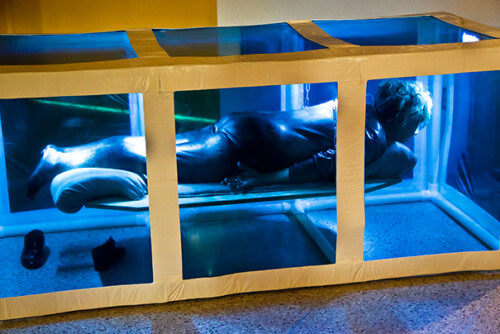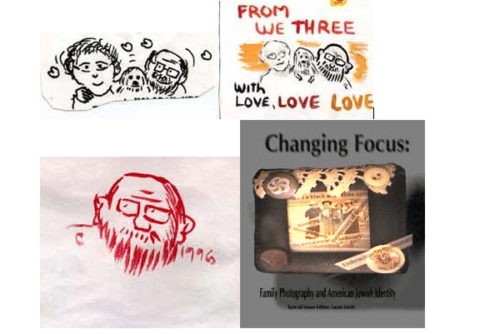Envisioning Justice
For many activists, including the contributors to this issue, a complete reconfiguration of the way we think of “justice” is necessary. This new sort of justice would not focus on policing and punishment, but instead on individuals working within their own communities toward safety, accountability, and conflict resolution. Regardless of the exact vision of justice the contributors to this issue (and other scholars of the Prison Industrial Complex) have, all agree that our current justice system is extremely flawed and in need of analysis and radical change. Even for those activists who don’t believe in the abolition of prisons, there is much that can be done: improving education in prisons; a moratorium on the death penalty; better employment possibilities for prisoners who have completed their sentences; an end to criminalizing marginalized people, including gender nonconforming individuals, people of color, and people living in poverty; and an end to the privatization of prisons and the corruption within them.
For most of the contributors to this issue, reversing certain national spending trends is fundamental to this revised vision of justice. Instead of investing in prisons and war, for example, tax dollars could ensure an adequate education system for all Americans; a broader health system that would include treatment options for substance abusers (to replace incarceration); and a support system for people living in poverty, including affordable housing and living-wage standards. Many of the contributors to this issue, including Alex Lee, Kai Barrow, Andrea Ritchie, and Ije Ude, propose new, less punitive ways of addressing domestic violence through enhanced forms of community empowerment. One way to begin this process—which, as Vivian Nixon points out, is going to be long—is to begin to integrate prisons into our field of vision when we think about U.S. society. The invisibility of prisons in most people’s everyday lives—although not in the plans of corporations—is part of the problem; awareness is an important first step. We hope that this issue is one small step toward this new vision.



